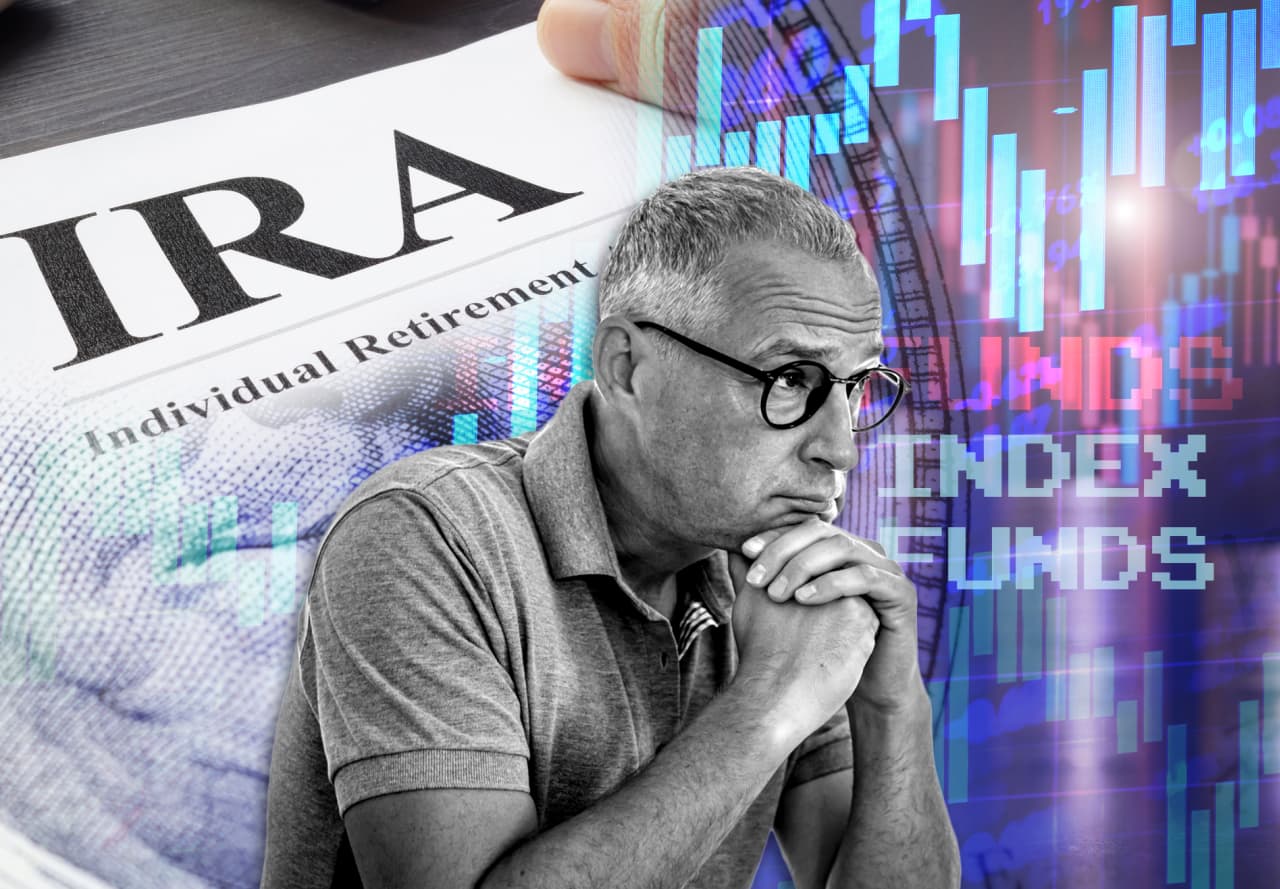Dear MarketWatch,
I spent five years as a teacher in Missouri, which entitled me to a small pension (under $400 a month).
Teaching didn’t work out for me and since I will never be able to return to the profession and increase my pension, I decided to cash out my pension and reallocate the funds to something that would pay more.
I paid off some debt and then invested $6,500 — the maximum amount allowed — in a Roth IRA. I’m 52 but don’t expect to retire for at least another 20 years.
Once I’m done with taxes, I’m not sure if I should put the remaining funds in the IRA or invest them in index funds like the Dow or Nasdaq. What is your advice?
Related: I’m 73, retired and taking my RMDs. But what if I become incapacitated and miss them for several years?
Dear reader,
I will answer your question with a question. Why choose one over the other when you can have both? Index funds are a popular choice for IRA investors, so there’s no reason why you couldn’t add them to your Roth IRA portfolio.
For those who may not know, and as the name suggests, index funds use indexes, such as the S&P 500 SPX,
Dow Jones Industrial Average DJIA,
Nasdaq Composite, COMP,
or many others, as benchmarks. They’re especially good for long-term investing, making them a good choice when you’re a couple of decades away from retirement.
When you have your retirement investment plans on your radar, but you’re not sure where to start, look at target date funds. Managers tie these portfolio funds to specific retirement years, such as 2030 or 2055. If your retirement is 20 years away, you might consider a 2045 target date fund. (Keep an eye out for commissions, also called expense ratios).
I am not a financial planner, specifically not your financial planner, so I do not provide specific investment advice. All the funds I mention here are simply to illustrate and explain how they work and what to look for.
Term funds
Let’s go back to the target-date background. If you look at Vanguard Target Retirement Fund 2045, VTIVX you will see under “holdings” that half of that fund is invested in Vanguard’s Total Stock Market Index Fund VSMPX, another 33% is in Vanguard’s Total International Stock Index Fund VGTSX, 10% is in the company’s VTBIX bond market index fund, 4% is in Vanguard VTILX International Bond Index Fund, and 1% is in cash. Take it a step further, using the total stock market index fund as an example, you will see that the top 10 holdings include Apple, AAPL,
Microsoft, MSFT,
Amazon, AMZN,
and NVIDIA. NVDA,
Vanguard isn’t the only company offering target funds or index funds. Other big names include Fidelity, Blackrock BLK,
T. Rowe Price TROW,
Schwab SCHW,
and American funds. You can spend a day researching their options and comparing holdings.
Another option you have is to invest in a traditional IRA right now if you’re in a higher tax bracket than you expect in the future (even if you don’t include assumptions about tax brackets when they expire in 2025). As your tax liabilities decrease, you can convert some of these funds into your Roth account. Having a Roth IRA is a great tool for retirement savings, and diversifying your investments and taxability will make any options you have in the future even more powerful.
Have a question about your retirement savings? Send us an email at HelpMeRetire@marketwatch.com
